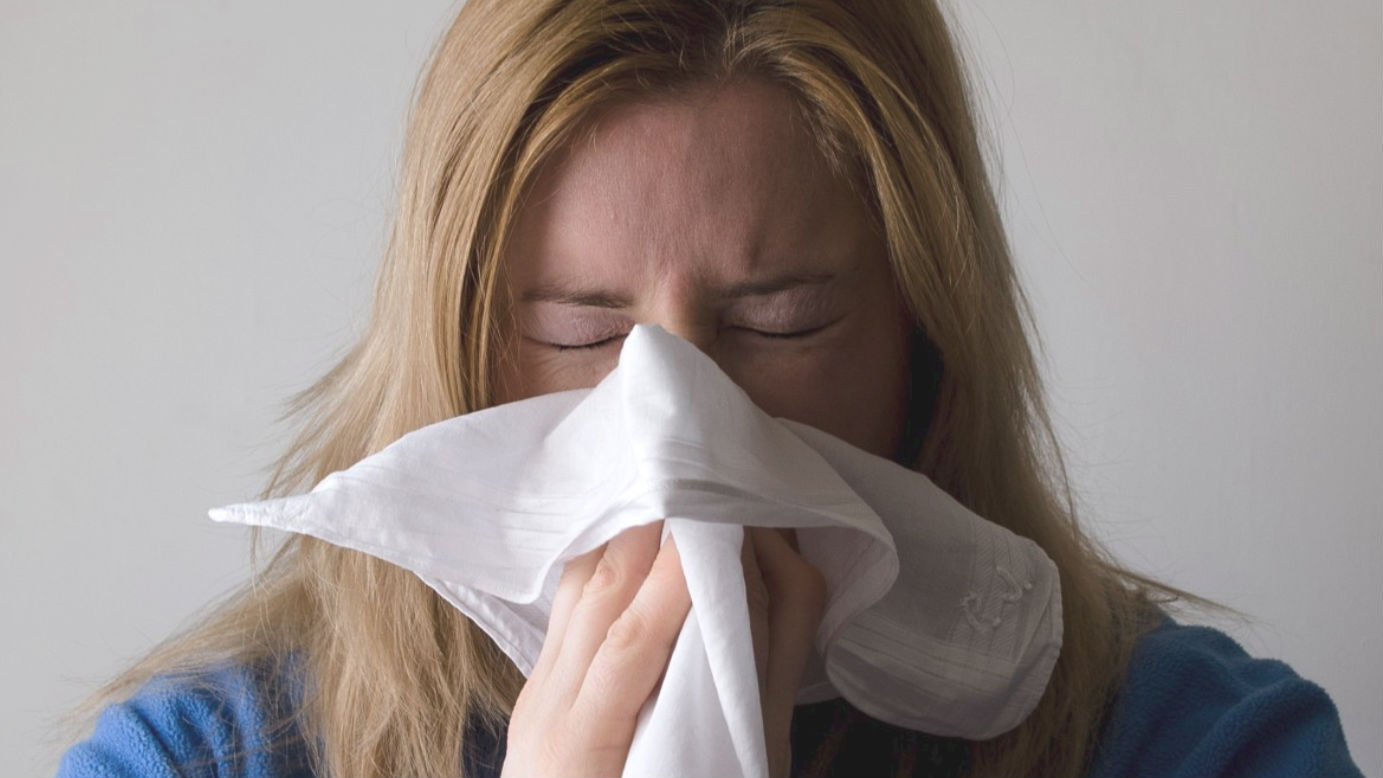Coronavirus: how the pandemic may be reducing flu risk
Experts report hopes of ‘silver lining’ as influenza season appears to wane earlier than usual

A free daily email with the biggest news stories of the day – and the best features from TheWeek.com
You are now subscribed
Your newsletter sign-up was successful
The Covid-19 coronavirus has brought misery worldwide but the pandemic may have at least one positive health outcome: social-distancing measures appear to have cut short the flu season.
EU data and other research suggests that “influenza, which each year kills hundreds of thousands of people worldwide, all but vanished in Europe last month as coronavirus lockdowns slowed transmission”, reports Reuters.
The winter flu season normally runs from October to mid-May in the northern hemisphere. But Holger Rabenau, virologist at the Frankfurt University Hospital, told the news agency: “The flu season ended earlier than usual this year and this is probably due to the measures taken regarding Sars-CoV-2, such as social distancing and mask wearing.”
The Week
Escape your echo chamber. Get the facts behind the news, plus analysis from multiple perspectives.

Sign up for The Week's Free Newsletters
From our morning news briefing to a weekly Good News Newsletter, get the best of The Week delivered directly to your inbox.
From our morning news briefing to a weekly Good News Newsletter, get the best of The Week delivered directly to your inbox.
Although final figures for European flu deaths are not yet available, “early estimates point to much lower mortality this year”, says Reuters.
Data from 11 European countries shows that 4,000 flu patients required intensive care treatment this season - around half the totals for the same periods in the previous two seasons.
However, Reuters warns that underreporting may have contributed to flu’s “apparent early demise”, adding that experts say “people with milder flu symptoms have mostly steered clear of hospitals during the Covid-19 epidemic”.
In the UK, latest provisional figures for 2020 up to 10 April from the Office for National Statistics show that the number of deaths from influenza and pneumonia have been below the five-year average in every week except one.
A free daily email with the biggest news stories of the day – and the best features from TheWeek.com
The total number of recorded flu and pneumonia deaths so far this year, not including those where Covid-19 was also mentioned, was 32,763 - nearly 5,700 fewer than the five-year average of 38,454 for the same period.
Countries outside Europe have also reported waning flu seasons this year.
Data from Japan’s government reveals that flu cases in the East Asian nation plunged by more than 60% year-on-year in the week to 9 February, as The Japan Times reported at the time.
“Many Japanese people have become serious about taking measures to prevent infection with the new coronavirus. This might be one of the reasons why influenza cases dropped this year,” Yoko Muramatsu, a researcher at the Tokyo-based NLI Research Institute, told the newspaper.
–––––––––––––––––––––––––––––––For a round-up of the most important stories from around the world - and a concise, refreshing and balanced take on the week’s news agenda - try The Week magazine. Start your trial subscription today –––––––––––––––––––––––––––––––
In an article on The Conversation, Lauren Bloomfield, a senior lecturer at the School of Medicine, University of Notre Dame Australia, says: “Influenza and Covid-19 share some similar symptoms. They are also both spread via respiratory droplets: coughing, sneezing and touching.
“Protecting ourselves from Covid-19 through good hygiene and social distancing also means protecting ourselves from flu. This is a small silver lining in an otherwise extremely disruptive time.”
-
 6 exquisite homes with vast acreage
6 exquisite homes with vast acreageFeature Featuring an off-the-grid contemporary home in New Mexico and lakefront farmhouse in Massachusetts
-
 Film reviews: ‘Wuthering Heights,’ ‘Good Luck, Have Fun, Don’t Die,’ and ‘Sirat’
Film reviews: ‘Wuthering Heights,’ ‘Good Luck, Have Fun, Don’t Die,’ and ‘Sirat’Feature An inconvenient love torments a would-be couple, a gonzo time traveler seeks to save humanity from AI, and a father’s desperate search goes deeply sideways
-
 Political cartoons for February 16
Political cartoons for February 16Cartoons Monday’s political cartoons include President's Day, a valentine from the Epstein files, and more
-
 A Nipah virus outbreak in India has brought back Covid-era surveillance
A Nipah virus outbreak in India has brought back Covid-era surveillanceUnder the radar The disease can spread through animals and humans
-
 How dangerous is the ‘K’ strain super-flu?
How dangerous is the ‘K’ strain super-flu?The Explainer Surge in cases of new variant H3N2 flu in UK and around the world
-
 This flu season could be worse than usual
This flu season could be worse than usualIn the spotlight A new subvariant is infecting several countries
-
 Covid-19 mRNA vaccines could help fight cancer
Covid-19 mRNA vaccines could help fight cancerUnder the radar They boost the immune system
-
 The new Stratus Covid strain – and why it’s on the rise
The new Stratus Covid strain – and why it’s on the riseThe Explainer ‘No evidence’ new variant is more dangerous or that vaccines won’t work against it, say UK health experts
-
 RFK Jr. vaccine panel advises restricting MMRV shot
RFK Jr. vaccine panel advises restricting MMRV shotSpeed Read The committee voted to restrict access to a childhood vaccine against chickenpox
-
 RFK Jr. scraps Covid shots for pregnant women, kids
RFK Jr. scraps Covid shots for pregnant women, kidsSpeed Read The Health Secretary announced a policy change without informing CDC officials
-
 New FDA chiefs limit Covid-19 shots to elderly, sick
New FDA chiefs limit Covid-19 shots to elderly, sickspeed read The FDA set stricter approval standards for booster shots